Knowledge For Resilience in the Peace
The cross-commodity podcast series touches on our primary agricultural commodity players including grains, oilseeds, forage seed, forage, livestock and horticulture. Margins in agricultural businesses are often small. Adopting new farming practices can bring a costly learning curve. Having access to knowledge from researchers, experts and peers who have already walked the path of trying a new practice or technology, affords more producers the opportunity to adopt production practices they may not otherwise have implemented.
Episodes
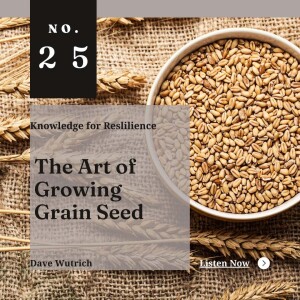
Monday Sep 11, 2023
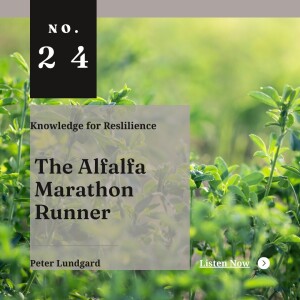
Thursday Feb 23, 2023
Thursday Feb 23, 2023
Peter Lundgard has long-term expertise in forage seed production. Peter was specifically drawn to the long-lasting yellow blossom alfalfa as he came across early research information and learnt about stands persisting well beyond 30 years in very harsh northern climatic conditions. Stand by for some great stories of the history of yellow blossom alfalfa, it’s many benefits to forage and livestock producers and why it is so well adapted to our northern climate.
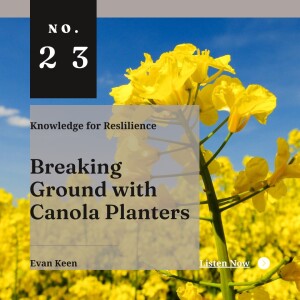
Saturday Jan 14, 2023
Saturday Jan 14, 2023
Evan Keen is a Peace Region producer who likes to challenge himself with on-farm trials. In a recent project, Evan converted a corn planter to a canola planter. If you are a canola grower or simply interested in the technology of a canola planter, you definitely don’t want to miss this one, as Evan walks you through his process and results.
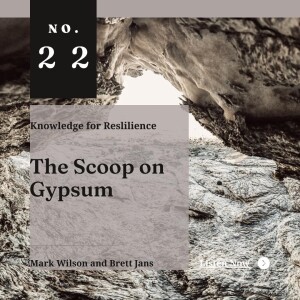
Saturday Jan 14, 2023
Saturday Jan 14, 2023
Mark Wilson and Brett Jans from Diverge Business Development (DBD) will share the scoop on gypsum, why it might be a good choice for soil health, when and how best to use it, and where you can get it right here in British Columbia. Gypsum is certainly not a new nutrient in town but maybe one that hasn’t gotten as much fanfare as it might deserve. If you are struggling with acidic soils, which are very common in the peace region, Gypsum might be a way to get sulfur and calcium into your soils without aggravating your pH problem.
Learn more about DBD:
https://dbdinc.ca
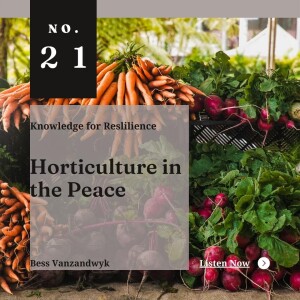
Wednesday Nov 23, 2022
Wednesday Nov 23, 2022
Today I sit down at the Kitchen table with Bess Vanzandwyk, a local force in horticultural production. A transplant to the Peace region herself, she has put down roots and is exploring how local communities can be more food secure with the growth of more local food producers.
Bess holds a Bachelor of Science in Biology and Environmental Studies. Bess and her husband Mike also started Hip Peace Produce in 2015, at the time located at Bear Flats, which unfortunately became the new flood zone for the Site C dam. During her time as a grower, Bess has planted over 100 varieties of vegetables, fruits and herbs. More recently, Bess and Mike along with their two children found a new farm home in the Rose Prairie area where they are working on building their permaculture property.
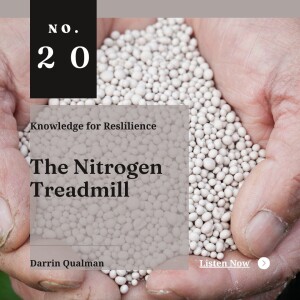
Tuesday Nov 22, 2022
Tuesday Nov 22, 2022
Darrin Qualman shares his thoughts and insights about how the Canadian farming community can manage their nitrogen use by gearing down the treadmill and at the end of day maybe even putting a few more dollars in their pockets rather than the input provider’s.
Darrin is Director of Climate Crisis Policy and Action for Canada’s National Farmers Union. He is a former farmer and the author of the 2019 report Tackling the Farm Crisis and the Climate Crisis and the 2019 book Civilization Critical: Energy, Food, Nature, and the Future. His research, writing, and educational pursuits over the past 25 years have all aimed at creating a long-term, big-picture view of food, farming, and energy systems. He is active in social justice and food system struggles and has helped organize many campaigns, including the successful struggle to prevent the introduction of genetically modified wheat into Canada. He has academic degrees in history, biology, and political studies.
National Farmers Union
https://www.nfu.ca
Nitrogen report
https://www.nfu.ca/publications/nitrogen-report-2022/
Imagine If…vision
https://www.nfu.ca/publications/imagine-if-a-vision-of-a-near-zero-emission-farm/
Civilization Critical by Darrin Qualman
https://fernwoodpublishing.ca/book/civilization-critical
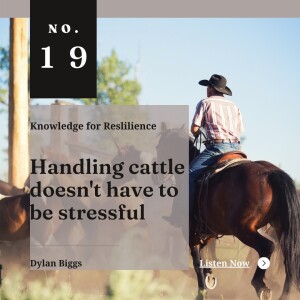
Monday Nov 07, 2022
Monday Nov 07, 2022
Dylan Biggs, along with his wife Colleen, own and operate TK Ranch which is located in the endangered Northern Fescue Grasslands of east-central Alberta. Dylan has an extensive background in ranching, holistic management, and cattle stockmanship, and provides sought-after workshops and training seminars on those topics.
TK Ranch
https://www.tkranch.com
Dylan Biggs Cattle Handling Clinics
http://dylanbiggs.com
Canadian Cowboy Magazine
https://cowboycountrymagazine.com
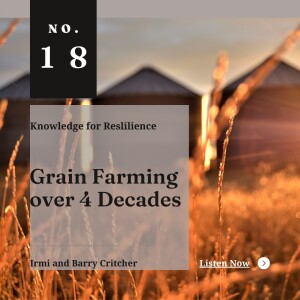
Monday Nov 07, 2022
Monday Nov 07, 2022
The Critcher family has been farming in the Peace River region near Taylor, BC since 1984. Together with their son Michael, daughter Jennifer and son-in-law Steve, Irmi and Barry have grown the family farm from when they started with 160 acres in 1984 up to 4,800 acres today. Critcher Farms grows grain and oilseed crops including wheat, barley, oats, canola, peas as well as grass seed and hay.
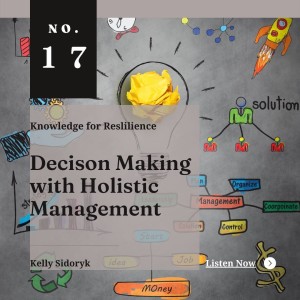
Friday Oct 28, 2022
Friday Oct 28, 2022
Today’s chat is with Kelly Sidoryk, a long-term rancher and holistic management practitioner. Maybe you have heard about Holistic management in passing, maybe it’s a new term for you and maybe you use holistic management on your operation all the time. Kelly will walk us through what holistic management is all about, a course coming up in the Peace region and how attending it can be perfect for those who would like to cross of the farm planning off the list but just never seem to get around to doing it.
Holistic management
https://holisticmanagement.org/the-regenerative-solution/
HM course in the Peace Region
https://peaceforage.bc.ca/event/holistic-management-training-6-day-course/
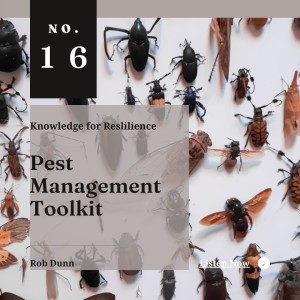
Friday Oct 28, 2022
Friday Oct 28, 2022
Today we are talking about integrated pest management with independent agrologist Rob Dunn. Rob will discuss his field approach of to help build soil and crop health, the importance of bees to your bottom line, and how beneficial insects can help tip the scale towards winning the battle against the bad guys. Rob iterates that it’s not about eliminating the use of pesticides but to reduce our dependency on them while also building a larger arsenal of tools that you can use for different pest and disease encounters.
Rob Dunn is a cropping systems specialist at Farm Wise based out of Lethbridge and a member of the Alberta Institute of Professional Agrologists.
Canola Council – Beneficial Insects
https://www.canolacouncil.org/canola-encyclopedia/insects/beneficial-insects/
Manitoba Agriculture – Beneficial insects
https://gov.mb.ca/agriculture/crops/insects/index.html
Bees and Canola
https://www.canolacouncil.org/about-canola/sustainability/bees/
Bee Connected App
http://www.beeconnected.ca
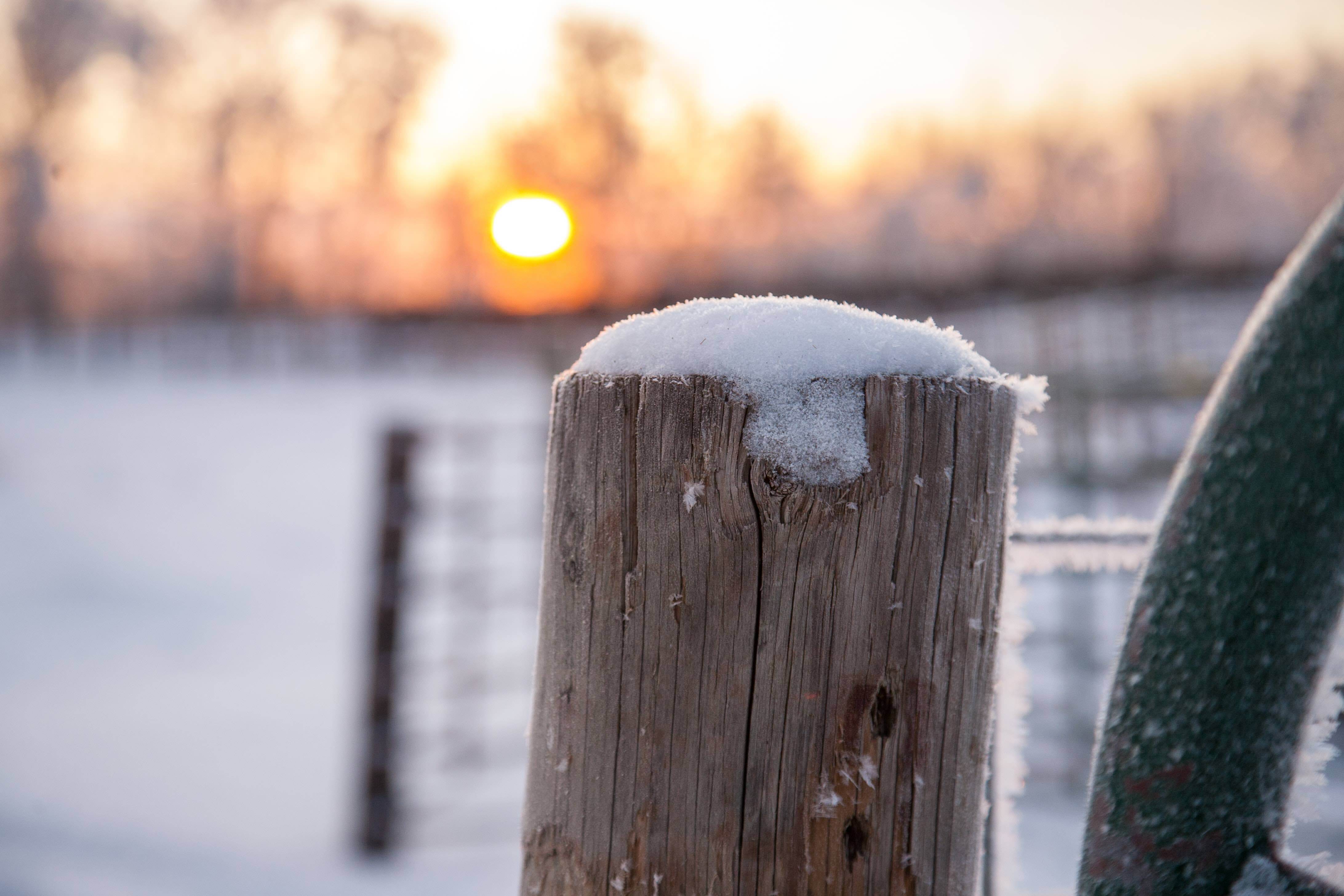
A Podcast for the Peace Region and Beyond
The Peace Region is rich in active producer and grower focused agricultural associations. To amalgamate our joint knowledge and foster cross-commodity collaboration towards our shared goal of building resilient and viable farming and ranching operations in the Peace Region, the Peace River Forage Association of BC (PRFA) is joining forces with the Peace Region Forage Seed Association (PRFSA), the BC Grain Producers Association and NEAT's Northern Cohort.
The project partner associations have a long standing history of bringing applied research, innovation and regionally adapted knowledge to a range of producers and growers. One limiting factor to move knowledge from research findings to farm applications, is the need for a bridge between the lab and the field. For example, if new research findings are published on reduced carbon emissions in no-till cropping systems, the information is likely first packaged in a scientific article. These articles are often locked behind paid journals and even if they are accessible, don’t make for the best bedtime reading material. Researchers on the other hand are busy proposing, implementing and analyzing their latest research, leaving little time and financial means to translate the scientific journal article into a format more easily consumable. Similarly, you may be curious about applied knowledge gathered by peers but may not have the opportunity to inquire for more details at the source. A podcast can offer a bridge between producers, specialists and researchers by packaging the information into a downloadable, on-the-go audio file.
Funding for this project has been provided by the BC Hydro Agricultural Compensation Fund.





